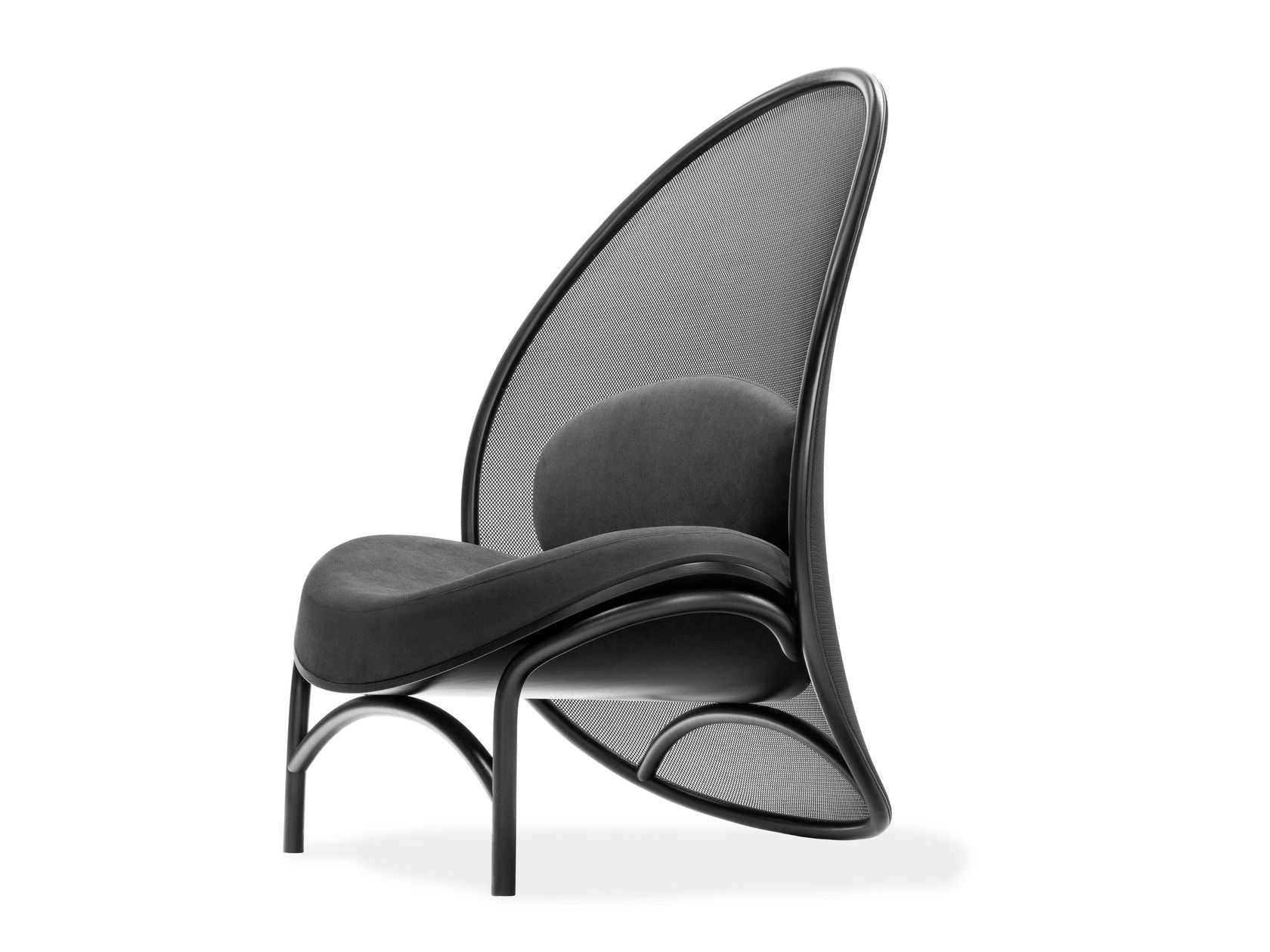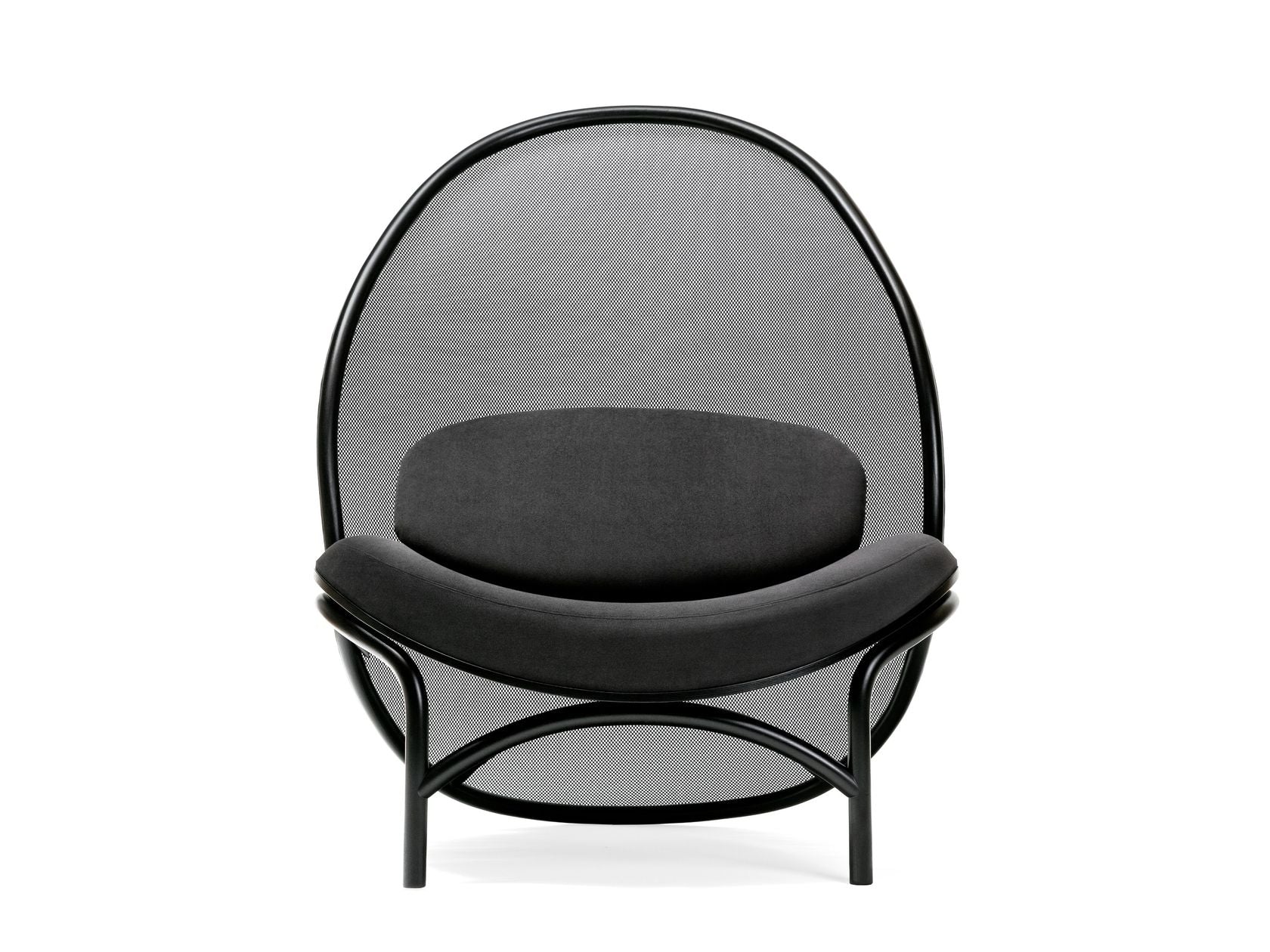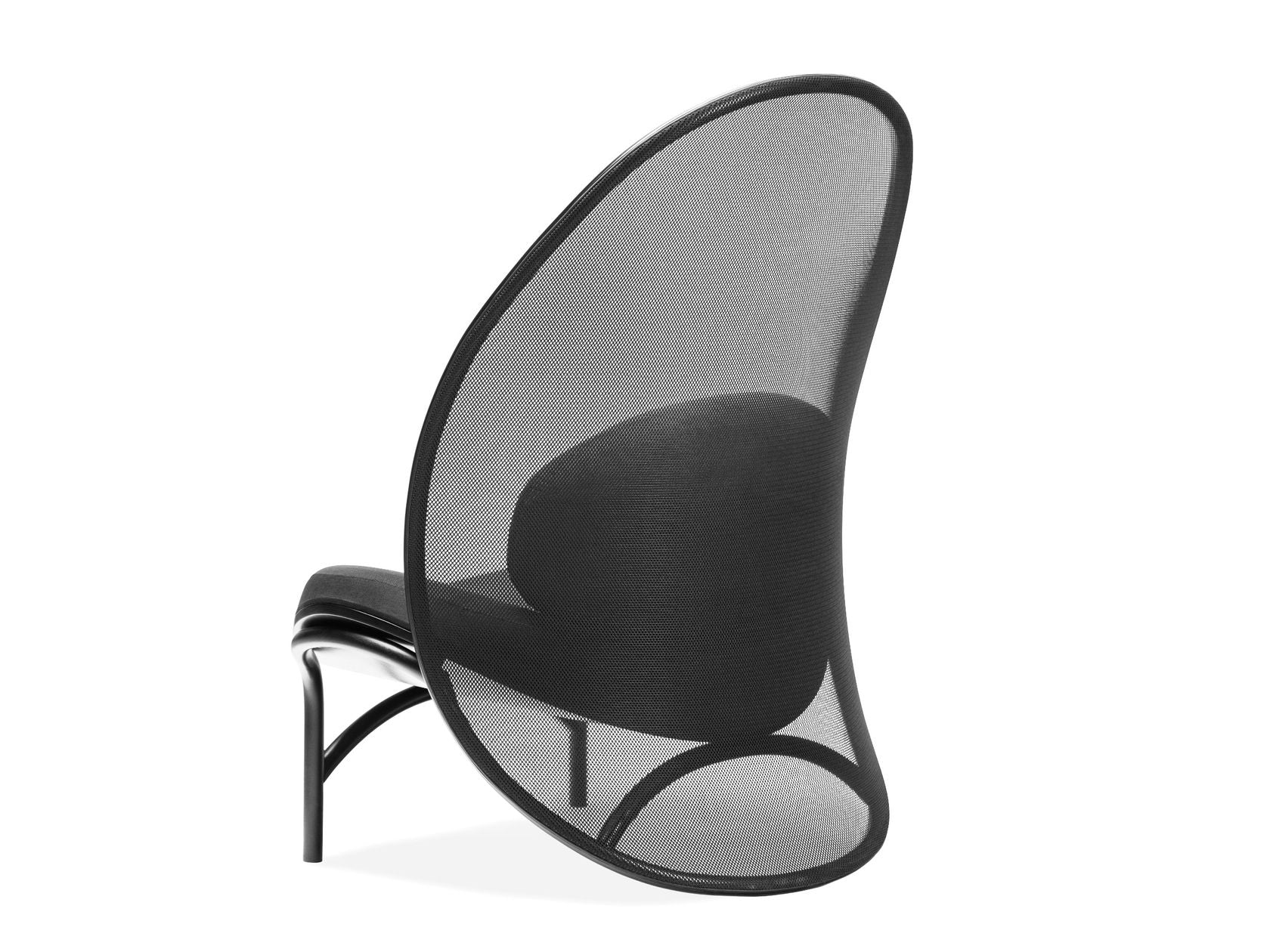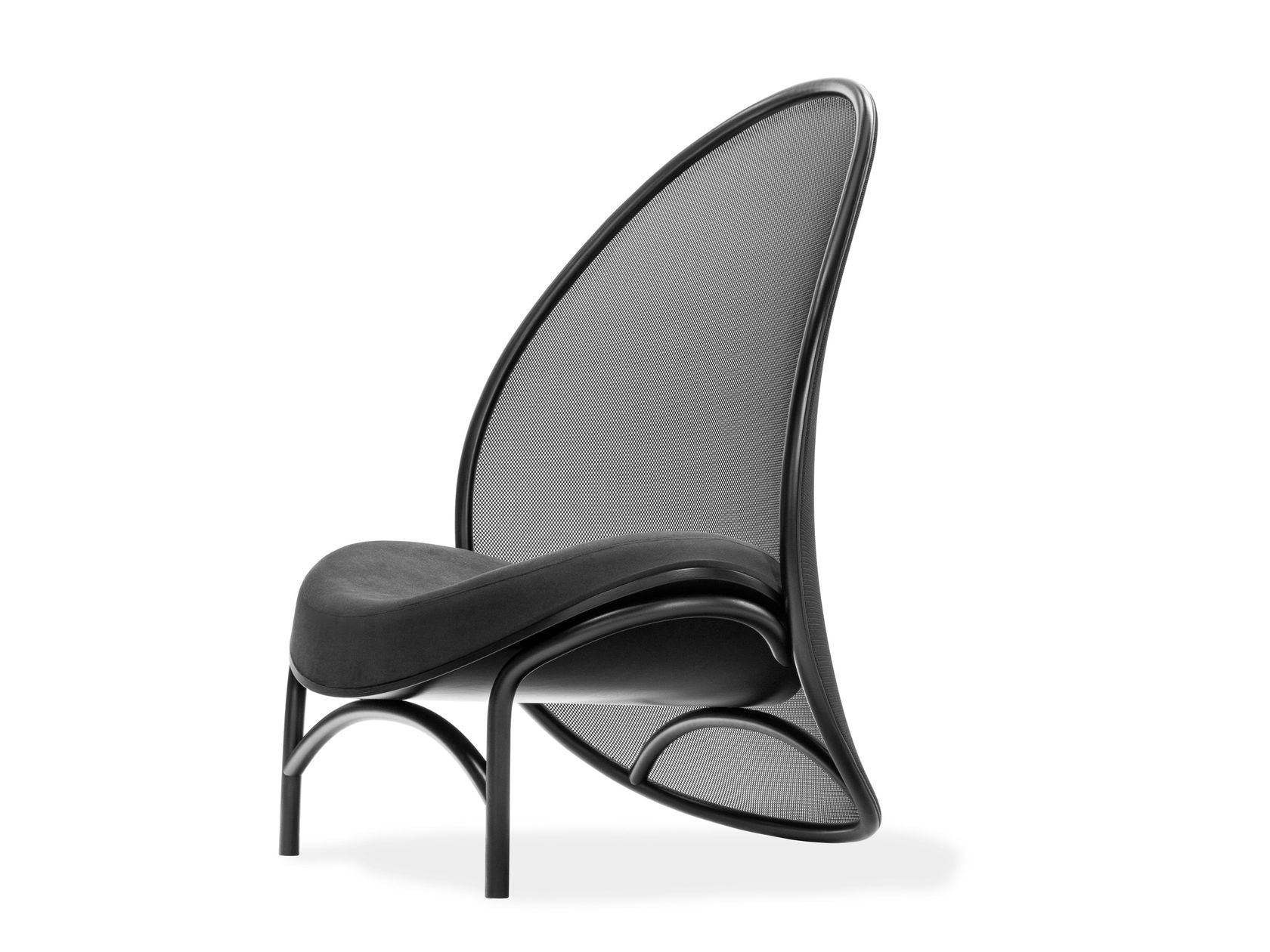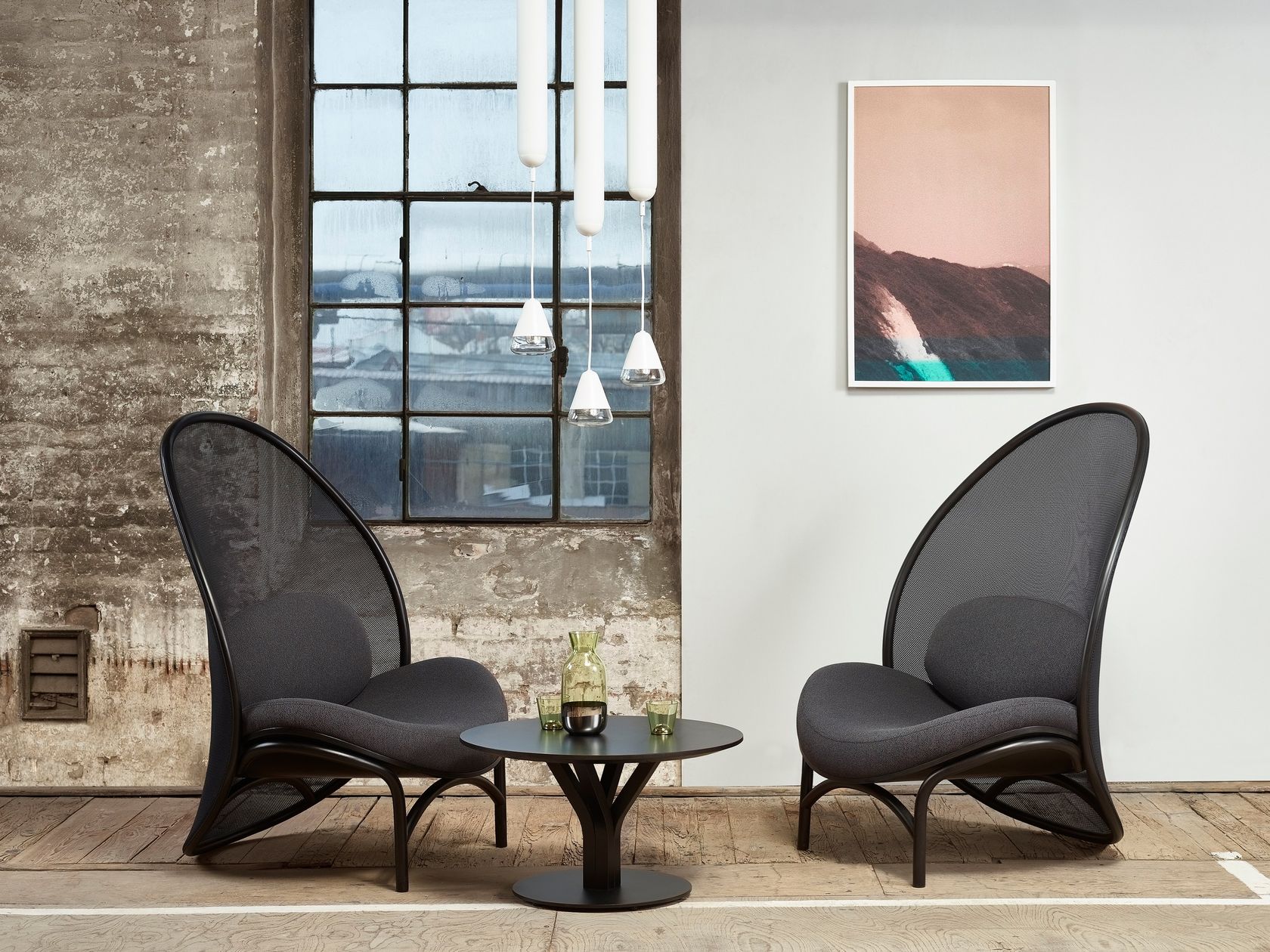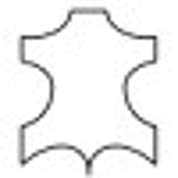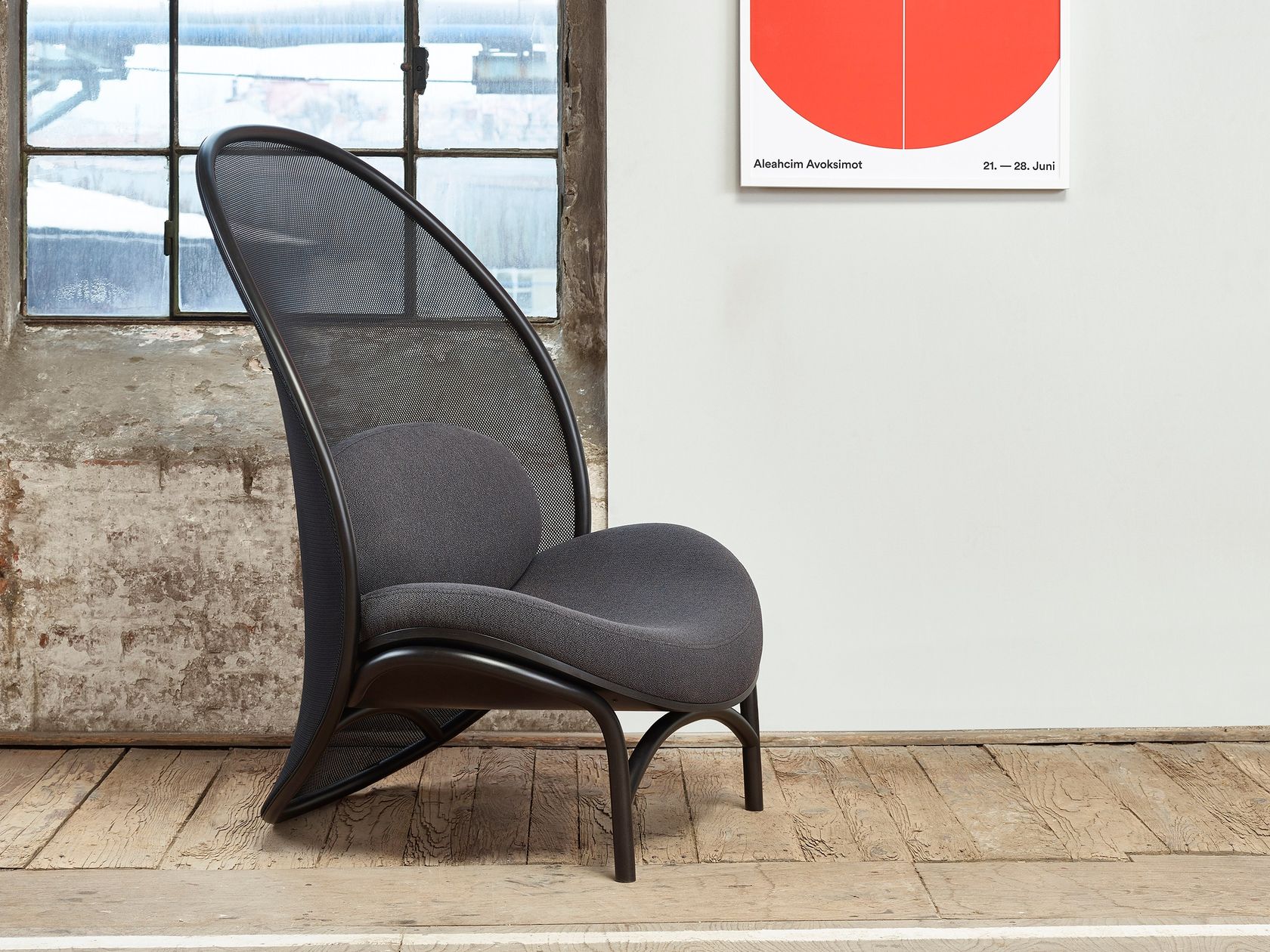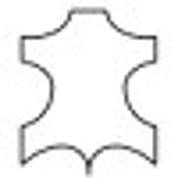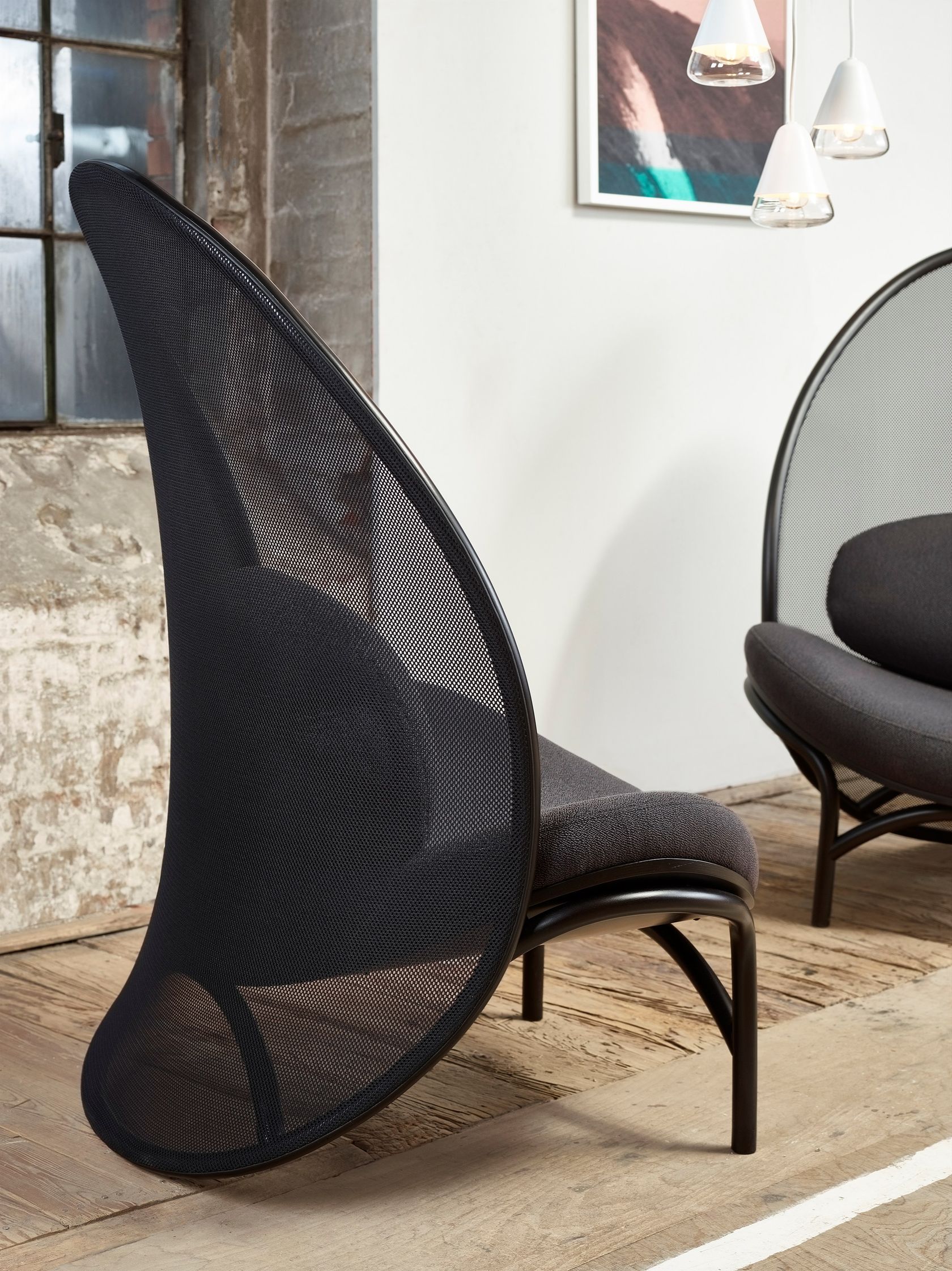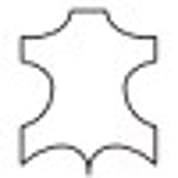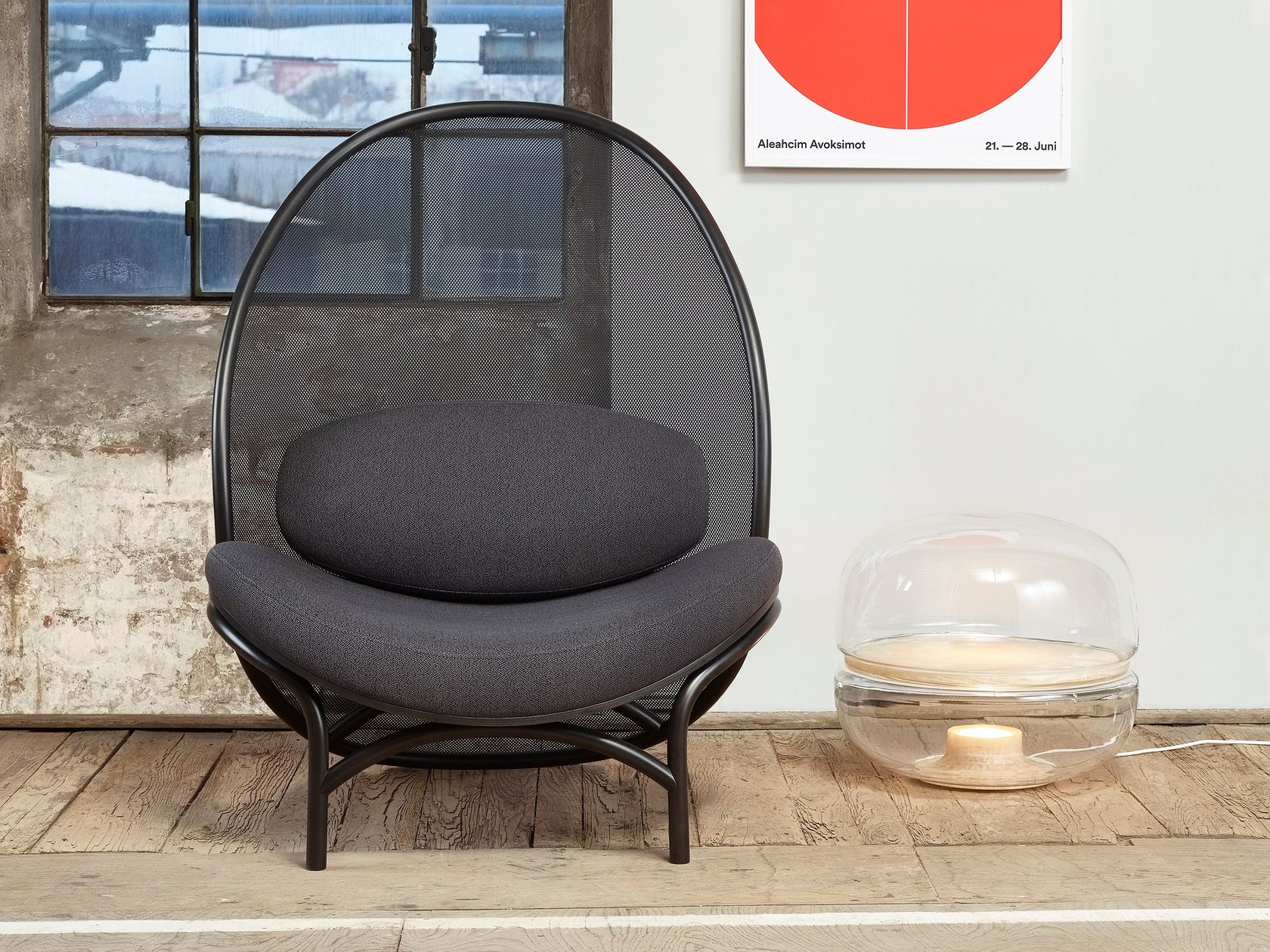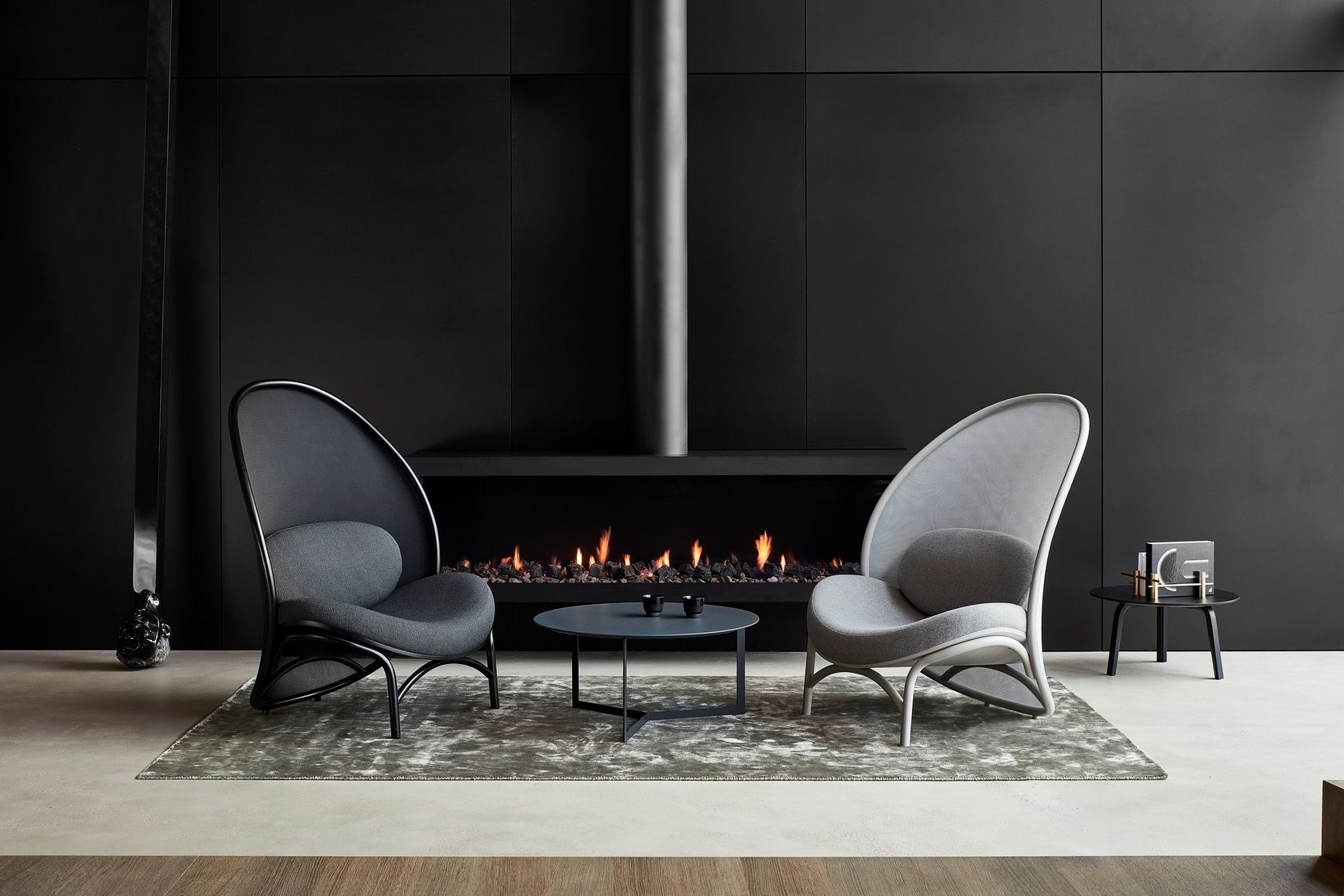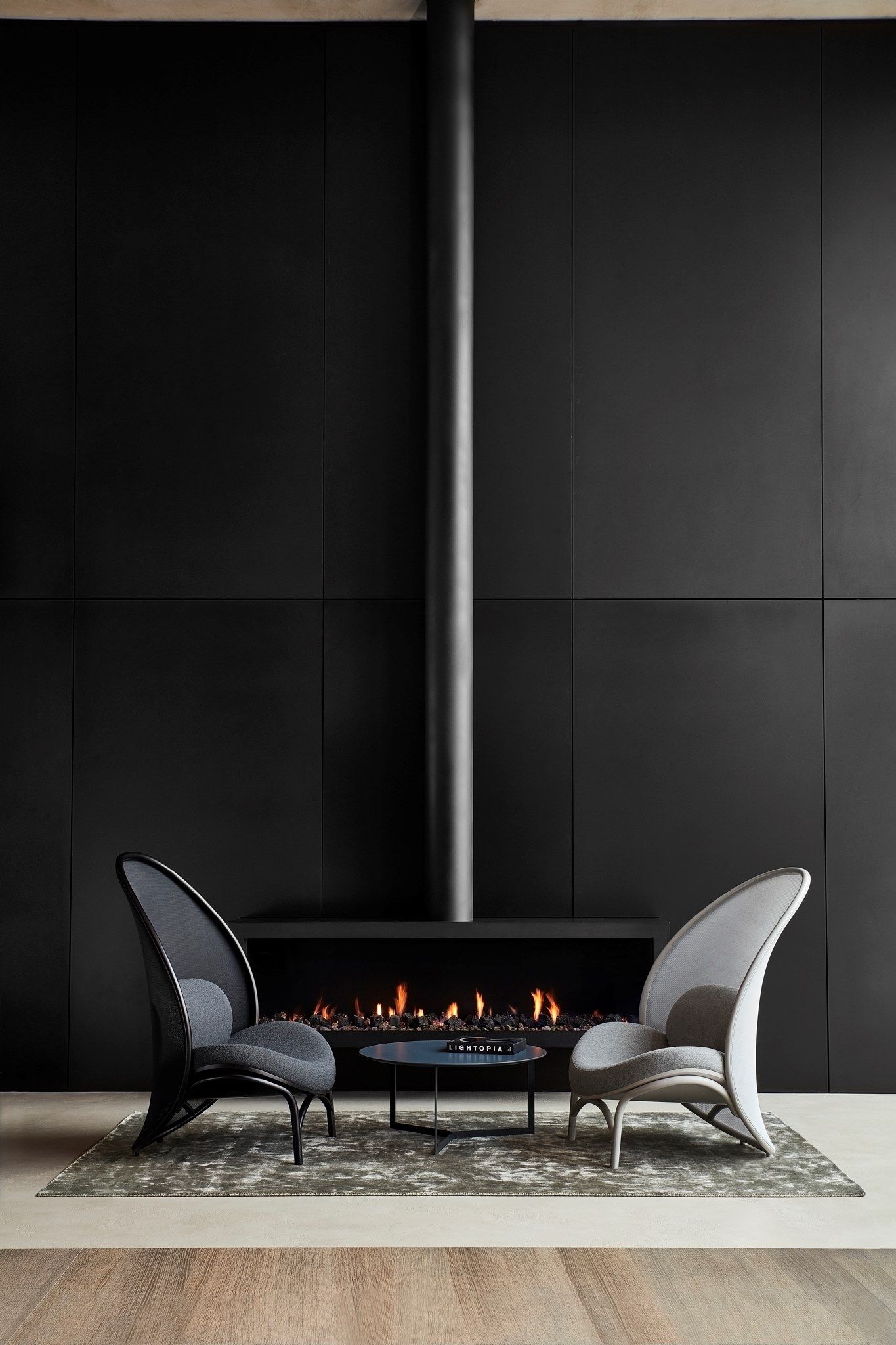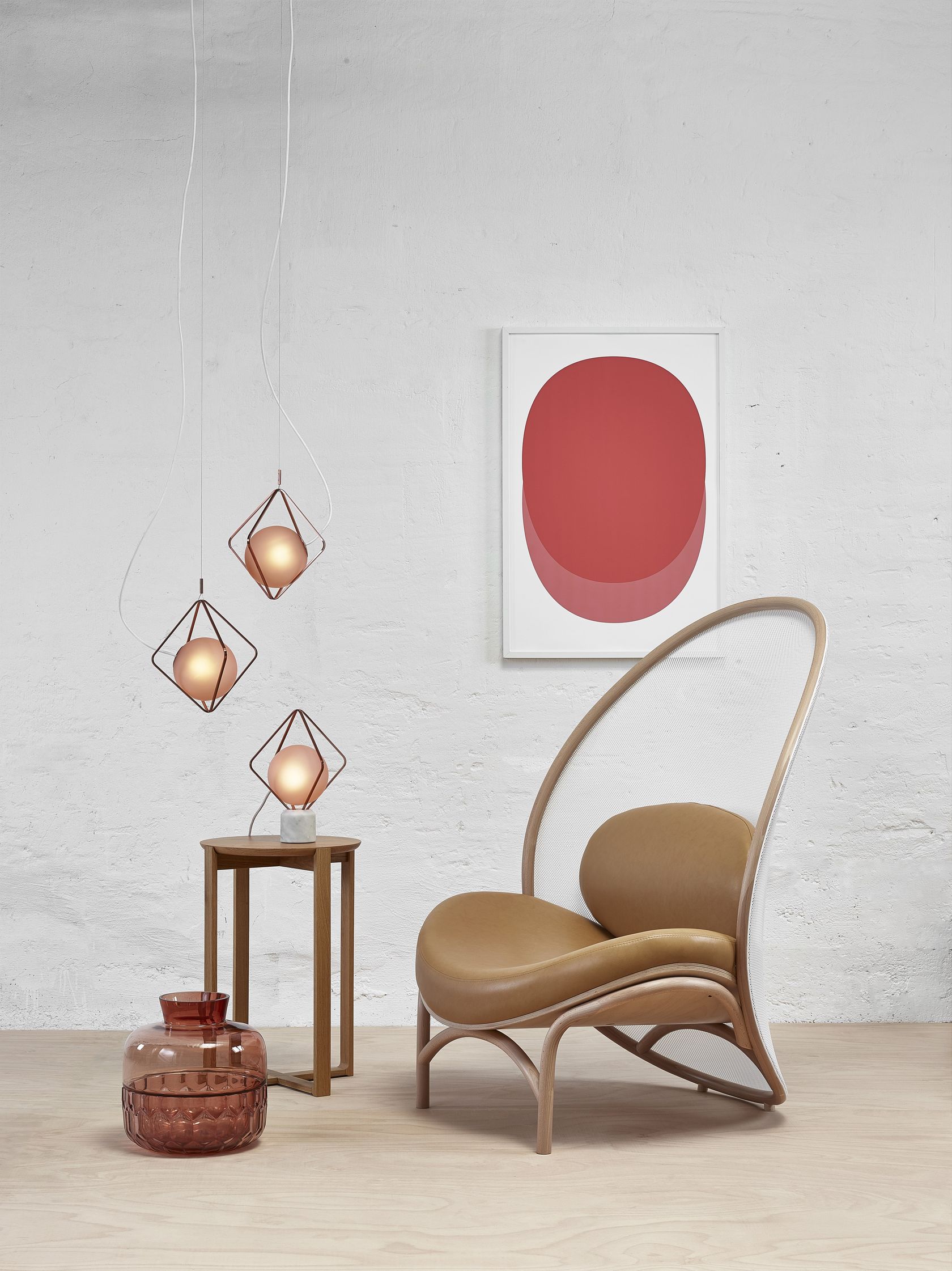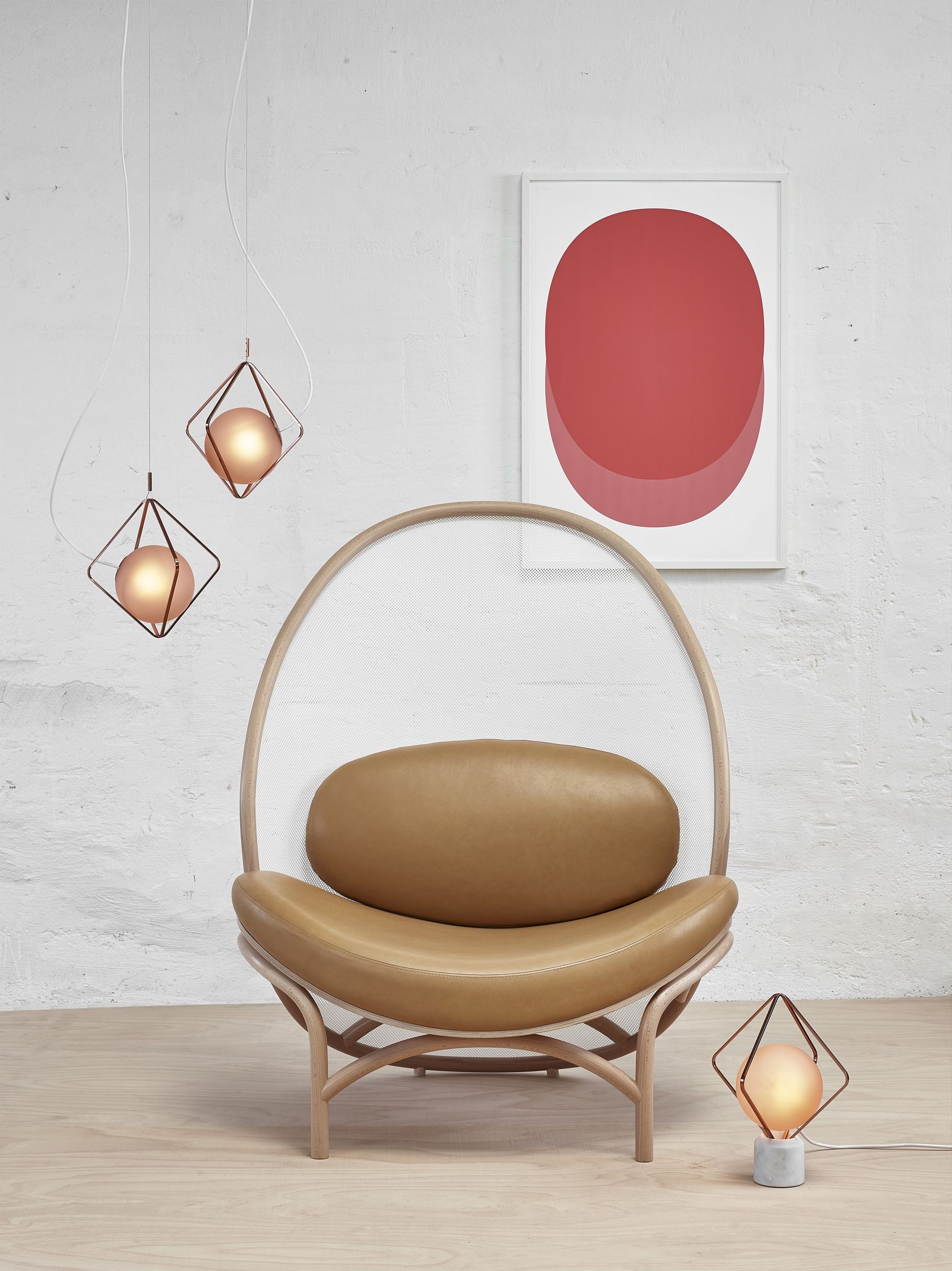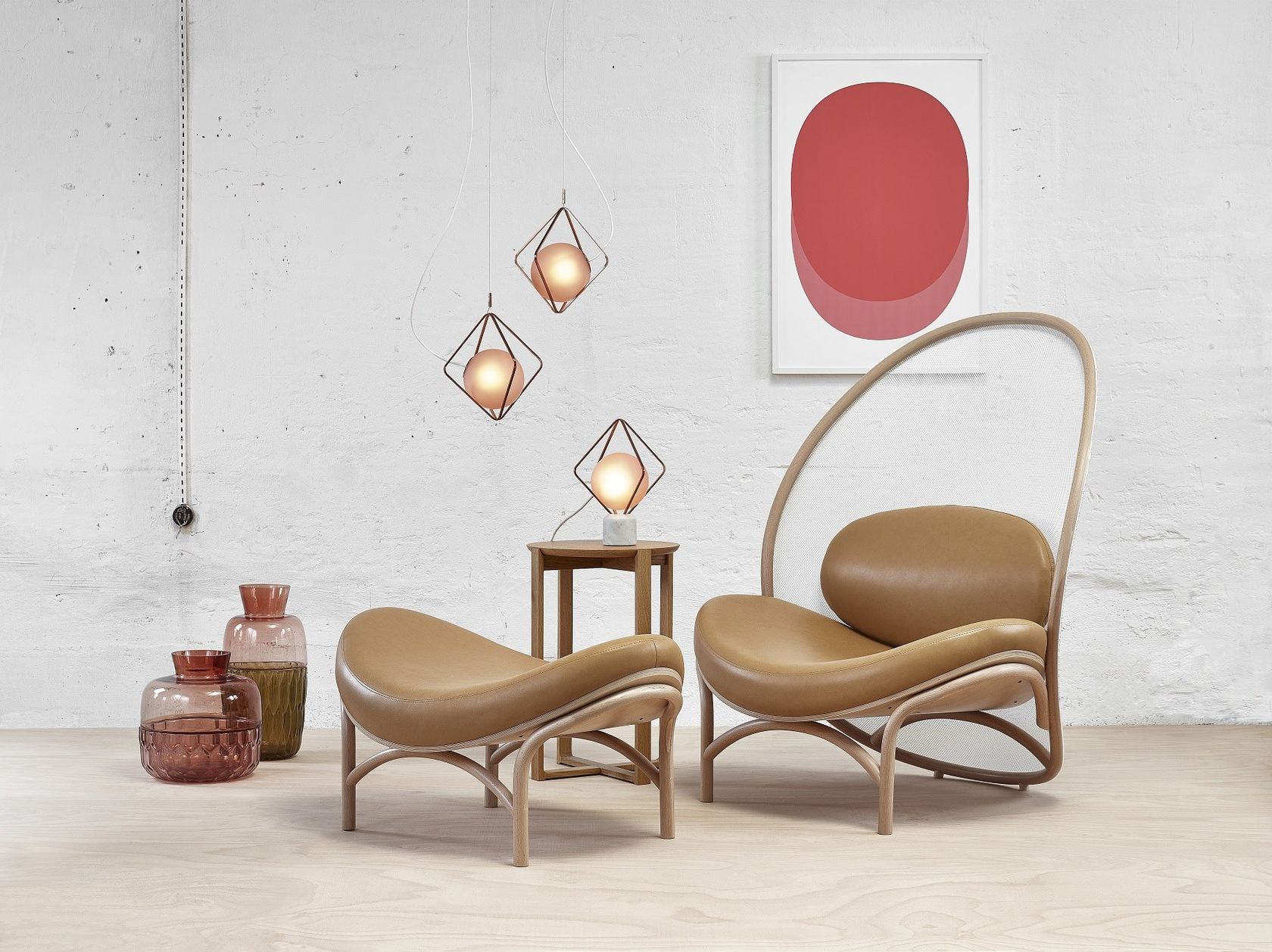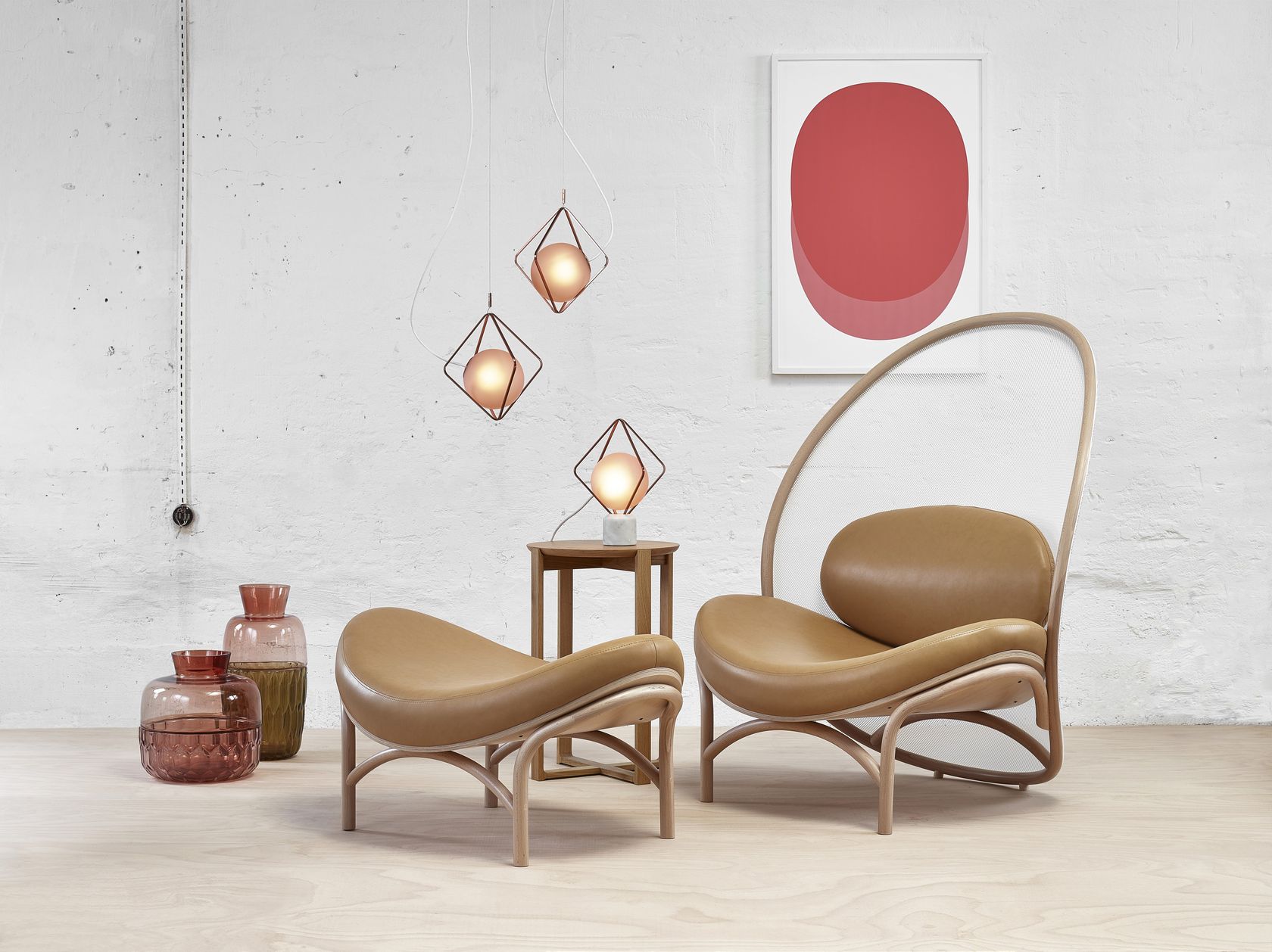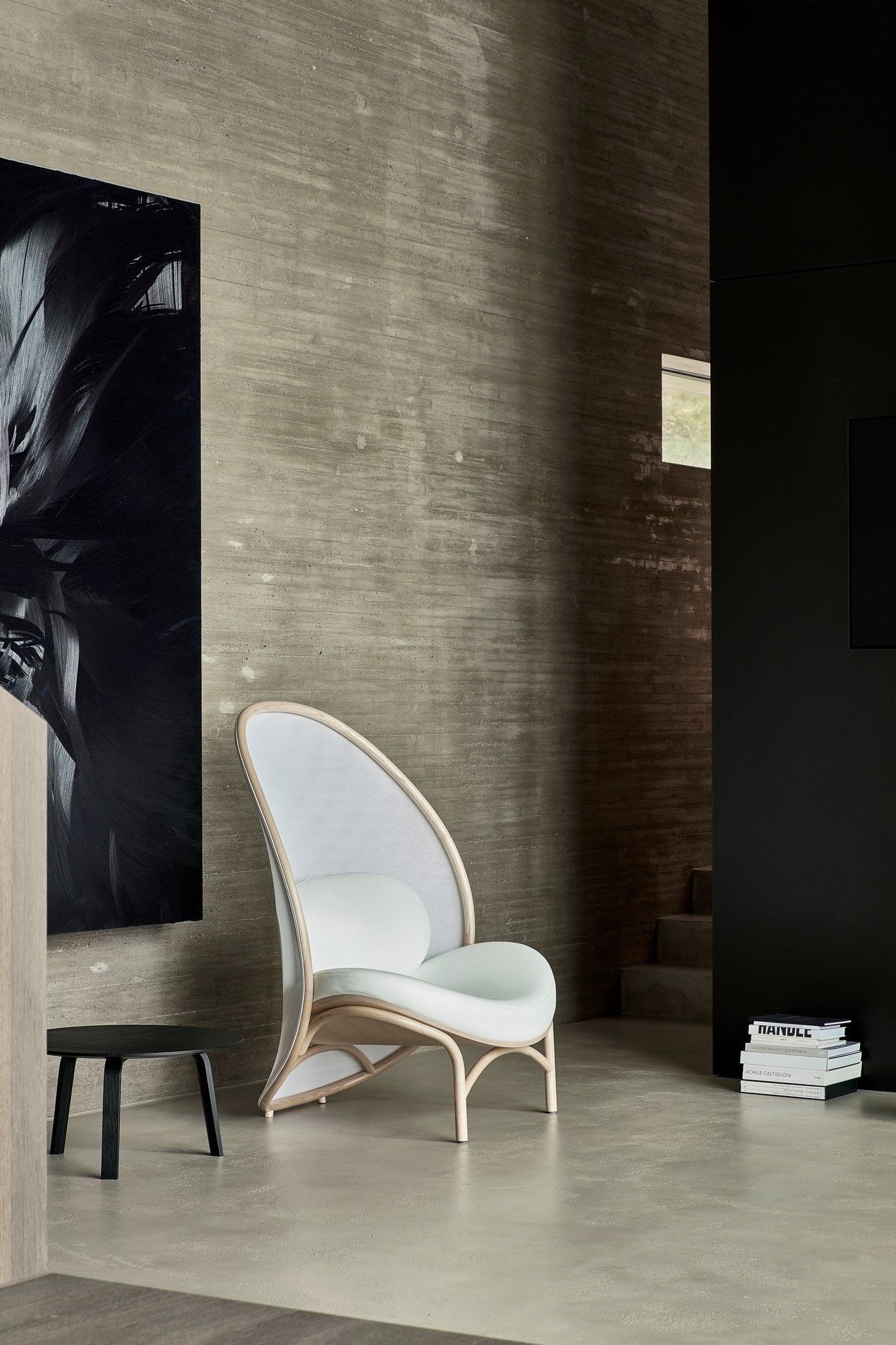Request a quote
Vendor Name
Description
CHIPS By TON
Designer: Lucie Koldova
Manufacture year: 2018
Type: Mesh easy chair
“I like to work with translucent materials, so in this design I chose a visually light yet intentionally oversized backrest, which is made from perforated fabric framed by manually bent wood,” describes Lucie Koldová the key features of Chips. Her signature style, best known for her work with light fixtures, enables the chair and the space that surrounds it to permeate each other harmoniously. “I wanted a chair that would be defined by its gentle curves, a chair that would be comfortable and inviting at first glance. A solitary piece with a distinctive character and story. And in contrast to a conventional chair, I wanted a chair that would feel sexy,” adds the designer. Chips hits the mark. The commanding, airy backrest, which also forms part of the chair base, resembles the typical shape of a potato chip. The backrest stands in strong contrast to the massive seat, which is supported by moulded plywood. In addition, seating comfort is enhanced with a removable back pillow. “At first I thought that the most challenging part of the design would be forming the backrest. Surprisingly, we had to pay more attention to the strength of the chair base, to ensure that the backrest would withstand the forces applied to it,” reveals the designer. Next to its sensual shape, Chips is interesting for its manual wood-bending production process. “I recommend a look at the video showing how individual bentwood pieces are made. It's fascinating – fast and yet complex. I see it as a creative dance,” says Koldová. It all begins with steaming the beechwood in special steam baths, where it stays for several hours. Once steamed, the wood is placed into metal moulds and secured by a special flange that applies pressure and allows it to be shaped into a new form. The wood is then dried, left to acclimatise for several weeks, sanded, stained and varnished. In Bystřice pod Hostýnem furniture has been made this way since 1861.

